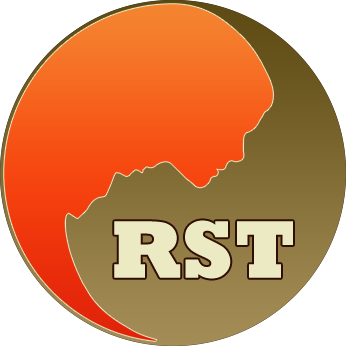Personal Therapy: A Reflexive Account
What have I, as a client, found helpful in therapy? What have I found unhelpful? And, What, for me, has been the process of change?
We’re currently working on an analysis of young people’s experiences of school-based counselling in our ETHOS trial and, as part of the preparation for that, we wanted to look at our own. This reflexivity is an essential part of good qualitative research: the more we can be aware of our own experiences, the more we can bracket it and ensure that we don’t impose it on what our participants are telling us.
So below is my summary based on those episodes of therapy, with therapists from a variety of orientations: person-centred , existential, psychodynamic, and cognitive-behavioural. Of course, this is just my experiences and perceptions, and someone else may experience therapy in entirely different ways (indeed, that’s the whole point of the exercise).
I have had 12 episodes of therapy over the last 38 years, from 12 different therapists. These have practiced from a variety of orientations: person-centred, existential, psychodynamic, and cognitive-behavioural.
HELPFUL
In terms of the person of the therapist, I’ve found it most helpful when they’ve been warm, friendly, and showing genuine care and interest. It’s been important to me that I feel respected by them: on a human-to-human, adult-to-adult level. At the same time, I have appreciated some professional ‘distance’ rather than over-familiarity. So someone who achieves a balance of being open and ‘human’, but at the same time capable of—and focused on—doing their job. Not too ‘sloppy’ or unstructured or laid back. Along these lines, therapy has been most helpful to me when I’ve felt that the therapist is someone who I can learn from, who ‘knows’ more than me in some area. Not necessarily ‘sorted’ or without their own problems, but someone who can help me discover things I didn’t already know.
It’s been helpful for me when therapists give me space to talk through, at my own pace, my problems. Also, it’s been really important to me that the therapist understands, deeply and fairly easily, how I experience the world. That they ‘get’ what life is like for me—as it actually is—and that they can help me (for instance, through reflections or questions) go more deeply into my experiences: talking about areas that I might only be dimly aware of.
Sometimes, insights from the therapist have been helpful to me (for instance, in relation to my past): particularly where put tentatively, and where I’m given space to work out their meaning for myself.
I have sometimes found psycho-education, or information from the therapist, very helpful. However, although this has often taken the form of specific guidance or exercises, it is generally the overall message that has been most helpful to me.
UNHELPFUL
In terms of the person of the therapist, I’ve found it least helpful when they show coldness, indifference, and a lack of care; and worse when they relate in ways that are aloof, arrogant, condescending, dismissive, and critical. I have also found it unhelpful when therapists engage in mechanistic and ‘by rote’ ways. Another thing I find very unhelpful is when the therapist seems to be making assumptions about who I am or how I experience the world, or wants to ‘impose’ their perceptions over my actual lived-experiencing. Along these lines, I really react when therapists, through interpretation or guidance, seem more interested in ‘proving’ the truth of their particular therapeutic model or dogma, rather than listening to how I experience my world, and helping me work out what’s best for me.
The other side of this is that, if a therapist is too vague, woolly, and ramshackle, I can end up feeling a bit lost in therapy and losing confidence in them. As above, for therapy to be helpful, I need to feel that the therapist is someone I can learn from—and develop in relation to.
PROCESS OF CHANGE
Most of my change in therapy has come through developing insights about what I am doing, why I am doing it, and how I am really feeling; and then finding ‘better’ ways of doing things—ways that are more satisfying, fulfilling, and rewarding. This has nearly always come about through a two-way dialogue between myself and the therapist: questions, reflections, and gentle insights and interpretations from the therapist; space for me to reflect, process their perceptions, and disclose further; more input and encouragement from the therapist.
Sometimes, particularly when things have felt very difficult, it has been helpful just to have lots of space to talk and put everything ‘out there’. This has made things feel less overwhelming and tangled up.
Knowing that there is someone there who I can turn to for help and support—someone ‘solid’, dependable, and knowledgeable—has been really important at times.
Learning, mainly through cognitive and behavioural therapies, that it is better to face fears than avoid them has been very helpful for me. This guidance has been a constant companion throughout my life, and has helped me to live ‘out in the world’ as fully as possible.
Sometimes, just being given accurate information by a therapist has allayed fears.
